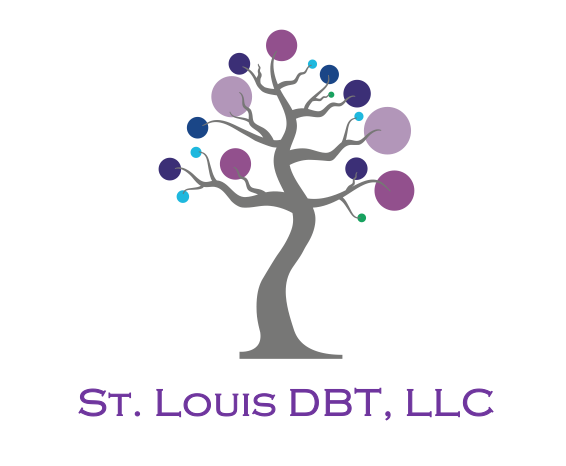DBT SKILLS GROUP FOR ADDICTIONS AND HABITS
Day/Time: Mondays 6:00-7:30 pm
Group size: 5-10 participants
Cost: $65/session
Insurance: Documentation provided to file for out-of-network reimbursement
Status: Accepting new clients ages 18+ with substance abuse and/or impulse control disorders and issues
Path to Recovery is based on curriculum for Dialectical Behavior Therapy for Substance Use Disorders Skills Group (DBT-SUD), an approach developed by Marsha Linehan to bridge the gap for individuals with both Emotion Dysregulation Disorders like Depression, Complex PTSD, Bipolar, or Borderline Personality Disorder (BPD) and Substance Use Disorder.
It is recommended for individuals with substance use disorders who are stepping down from a higher level of care or whose use has not yet progressed to that need. It is also highly beneficial for people who have struggled to free themselves from other addictive or habitual behaviors such as overuse of technology, binge eating, or compulsive gambling, spending or sex.
Like standard DBT, this skills group is a class for learning skills for controlling emotion responses, tolerating stressful events without using substances or habitual behaviors and solve interpersonal problems. It works best when combined with individual therapy, between session coaching calls, and often pharmacotherapy.
WHAT IS A DIALECTIC?
A dialectic is the acknowledgment of two polar opposites, the truth and benefits of both sides and the synthesis of both. In the quest for abstinence, the DBT dialectic takes the form of pushing for immediate and permanent cessation of drug abuse (i.e., change), while also acknowledging the fact that a relapse, should it occur, does not mean that the client or the therapy cannot achieve the desired result (i.e., acceptance). The dialectical approach therefore promotes total abstinence while also preserving nonjudgmental, problem-solving responses to relapse which include techniques to reduce the dangers of overdose, infection, and other adverse consequences.
DBT-SUD (in standard form which includes skills group, individual therapy, and coaching calls) has been evaluated in several randomized clinical trials with men and women with Borderline Personality Disorder and SUD, including poly-substance dependence, opioid dependence, and alcohol dependence. These studies provide evidence that DBT is effective in treating substance use problems while simultaneously addressing other complex problems related to emotion dysregulation, including high risk behaviors, impulsivity, depression, anxiety, and eating disorders.
The Path to Recovery Group’s Goals include:
Eliminating abuse of substances or use of habitual and ineffective behavior patterns
Alleviating physical discomfort associated with abstinence and/or withdrawal
Diminishing urges, cravings, and temptations to engage in the addictive or habitual behavior
Avoiding opportunities and cues to engage in the habitual behavior or addiction (for example, by burning bridges to persons, places, and things associated with drug abuse)
Reducing behaviors conducive to addiction
Increasing community reinforcement of healthy behaviors
Creating a life worth living absent of the addiction
three 8-week modules
In DBT-SUD there are four distinct skill sets taught across three 8 week modules, totaling 24 weeks of treatment. DBT-SUD includes the same treatment strategies and protocols as standard DBT, but tailors the skills for individuals struggling with addictions. It also adds in skills, targets, and treatment strategies specific to substance use, binge and compulsive behaviors.
Mindfulness (Taught at the beginning of each 8 week module)
Mindfulness allows us to refocus our awareness back to the present moment, often a very difficult concept to do. Typically, we are caught up in thoughts about the future (“I am going to fail that job interview next week.”) or the past (“I could list all the jobs I’ve lost in the past on my fingers, but I would need three hands.”) to the point of not realizing what is even going on around us in the present moment. This is especially dangerous for anyone struggling with addiction, because cravings to use can come at any time especially if you have difficulty connecting to the present moment.
Learning how to be mindful can help you: to become more aware of cues for cravings, with impulse control, and to relax in high-stress situations. Often individuals think mindfulness is just meditation, but meditation is just one aspect of mindfulness. For example, in the DBT-SUD skills group, mindfulness will be used to effectively differentiate when you are in “clear mind” vs. when you are in “addict mind” or “clean mind.”
Interpersonal Effectiveness
The ability to set boundaries and assert yourself to meet your needs is an essential skill set for any individual to learn, but it is especially important for individuals with emotion regulation difficulties and addiction issues. In this module, individuals learn skills to be able to:
repair healthy relationships that have been damaged by their addiction
recognize how to “build new bridges” in their lives
identify “Butterfly Attachment” and develop an understanding of how this can affect their pattern of relating to others
examine the dialectic between time alone and asking for help
validate themselves and others
Emotion Regulation
Regulating emotions can be extremely difficult for individuals in DBT-SUD. Addiction behaviors are often used to reduce painful emotions, as well as difficulty controlling intense emotions may lead to impulsive behaviors including substance use. This module works to help clients learn effective strategies for regulating emotions and coping with urges and cravings without resorting to the addiction behavior. Some examples of the skills learned are: using opposite action and building a life worth living without addiction.
Distress Tolerance
At times, all other coping skills will break-down, an individual may feel completely overwhelmed and believe their only choice is to engage in a behavior that relieves pain in the short-term but is destructive in the long-term; this is where distress tolerance skills come in to help an individual lower the intensity of their emotions enough to be able to use other skills, if necessary. During this module, individuals learn skills that they can use when in the past, they may have used addictive behaviors instead.

